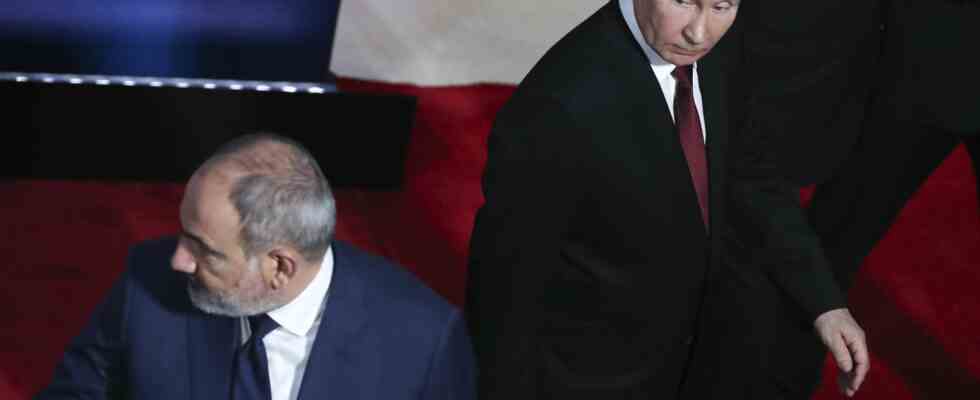Yerevan rather than Bali. After disdaining the G20 summit organized in mid-November in Indonesia, because he felt that his personal safety would not be guaranteed there, or for fear of a confrontation with his counterparts, Vladimir Putin hoped to give himself on more familiar ground. Welcomed, Wednesday, November 23, in the Armenian capital, the Russian president intended to deny once again the relative isolation which is his on the international scene and to tighten the links with his allies and neighbors.
Alas, this short visit will above all have reminded us of Russia’s weakness, even in its “near stranger”, according to the formula in use in Moscow, and the decrepitude of the regional alliance which it directs. The summit meeting of the Collective Security Treaty Organization (CSTO) – an alliance which includes, in addition to Russia and Armenia, Belarus, Kazakhstan, Kyrgyzstan and Tajikistan – will thus have seen the head of the Kremlin criticized for all around. Sign of a tension impossible to hide, the final document of the summit was not adopted, because of the blocking of Armenia which considers itself abandoned vis-a-vis its Azerbaijani neighbor.
On the central issue of Ukraine, evaded by Mr. Putin in his introductory remarks, the President of Kazakhstan, Kassym-Jomart Tokayev, recalled the position shared by almost all of Russia’s neighbors: “It is time to seek a peaceful solution together. (…) We cannot accept that the brotherly Russian and Ukrainian peoples are separated for decades or centuries by mutual grievances. »
“Serious internal tremors”
Believing to come to the rescue of his ally, the Belarusian leader, Alexander Lukashenko, warned: “If Russia wins, the CSTO will live. If, God forbid, she does not win, the CSTO will cease to exist. (…) If Russia collapses, we all belong in the rubble. »
This clumsy exit, which contradicts the myth of the“special operation”is nonetheless revealing: the very existence of the military alliance, formed in 1994, which brings together these six states of the former USSR, is today in question and, with it, one of the levers influence of the Kremlin in what it considers to be its backyard. “The alliance is at a moment of truth, comments Arkadi Dubnov, Russian specialist in the post-Soviet space. She experiences serious internal tremors, and some of her members are frustrated and disgruntled, to the point of wondering what still justifies her existence. »
You have 71.85% of this article left to read. The following is for subscribers only.

